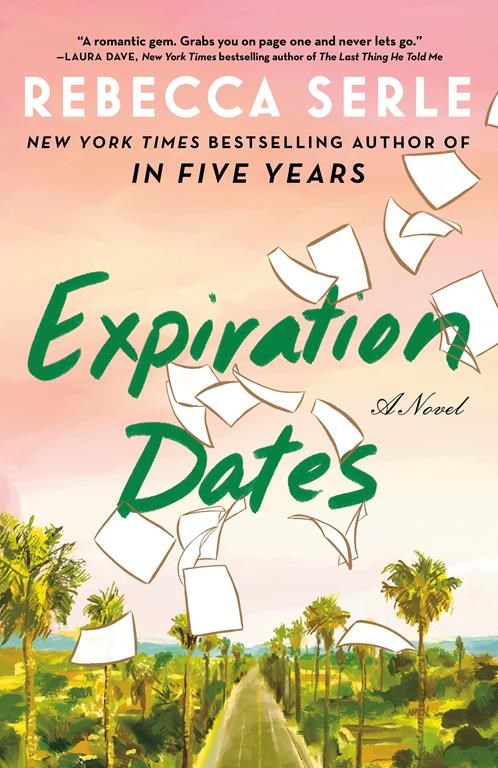In Rebecca Serle’s new book “Expiration Dates: A Novel,” the protagonist, Daphne, knows when her relationships will end. A slip of paper always shows up with a name and a number for how long they will date.
We meet Daphne on her way to a blind date with Jake — whose paper doesn’t have a number. This must mean he’s the one. Or is he? Is it helpful or a hinderance to have the answers?
“I was thinking about fate and free will and which one wins,” Serle said recently over Zoom from her home in Los Angeles. “How much is within our control and how much is going to happen regardless of the decisions we make and the choices that we make?”
Serle’s recent novels have blended fantasy and realism. In her last book, “One Italian Summer,” a woman meets a younger version of her mother while on vacation.
In “Expiration Dates,” Serle, who married in 2023, was inspired by her own dating history.
”I was single for a really long time,” she said. “I remember relationships would end and I would feel like, “This again? Didn’t I already learn this lesson?” Looking back, I see who I had to become before I met my husband, but it’s hard to see in the moment. That’s where the wish fulfillment of ‘Expiration Dates’ comes in. There is something so compelling about the idea how you might see a relationship if you weren’t entering into every one, as I did, thinking ‘This could be the one.’”
Serle spoke to The Associated Press about philosophy, what she tells her husband about her books, and why running and writing are a lot alike.
Remarks have been edited for clarity and brevity.
___
AP: What inspired you to start adding fantasy elements to your books?
SERLE: In college I would write magical realism short stories. I read a lot of Aimee Bender and Haruki Murakami and enjoyed the way they would open up a universe and not explain it. Something about that just sparkled. I published four young adult novels before writing my first novel for adults which was “The Dinner List” in 2018. With that, I went back to how I began by writing magical realism.
AP: Did you by chance study philosophy in school?
SERLE: I was actually obsessed with philosophy in high school. I remember reading Plato’s “The Allegory of the Cave” and being blown away.
AP: Your readers enjoy the magic elements in your book. Do you ever feel pressure to continue to include those?
SERLE: I’m working on a book right now that might be the last book that has some kind of magic in it. I want to keep reinventing myself as a writer and growing. But I’m also aware that I have an audience that for whatever reason, lovingly and wonderfully and surprisingly really likes what I do. We’ll see. Once the thing is no longer interesting to me, the books are not going to be interesting to read. That’s just the truth.
AP: What has it been like introducing your husband to your writing?
SERLE: I said to my husband early on, and I remind him all the time, “Happy marriages doesn’t make interesting books.” He’s going to inevitably recognize himself in everything that comes next, because the fabric of our lives are now woven together. We live together. We share a life together He’s going to recognize details of himself in a husband character. Of course he is. I’m writing it. But just because that person you know, has an affair doesn’t mean that that’s how I feel about him. That’s a hard thing sometimes for non-writers to understand.
AP: You’ve recently started running regularly and say running is like writing. How so?
SERLE: By the way, by running I mean like, 3 miles. I’m not marathoning, OK? But I never ran a mile in my life. I really had never run five minutes in my life. I recently started running because it was something I really wanted to learn how to do. My knees would hurt when I ran for five minutes, but they don’t hurt now that I run for half an hour. Your ability to keep moving and your lung capacity adapts, but I think what really adapts is your brain. Your brain says, ‘I know I can do this; I know I can complete this.’ I think that is exactly what it means to write a book. Every time I sit down to do it, it gets a little bit easier, because I’ve done it before, and I know I can do it again You keep on and eventually something gets built.
Alicia Rancilio, The Associated Press







